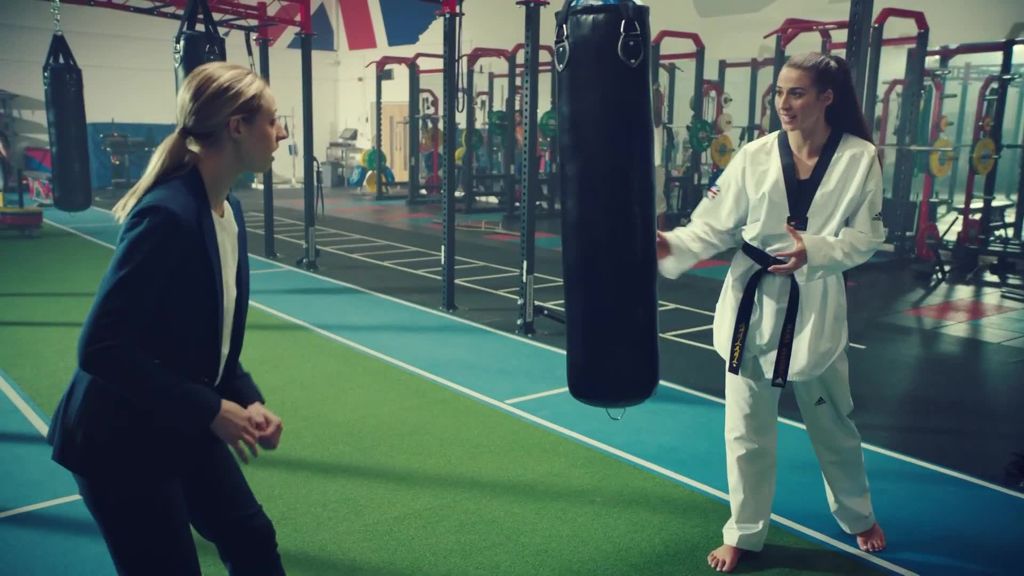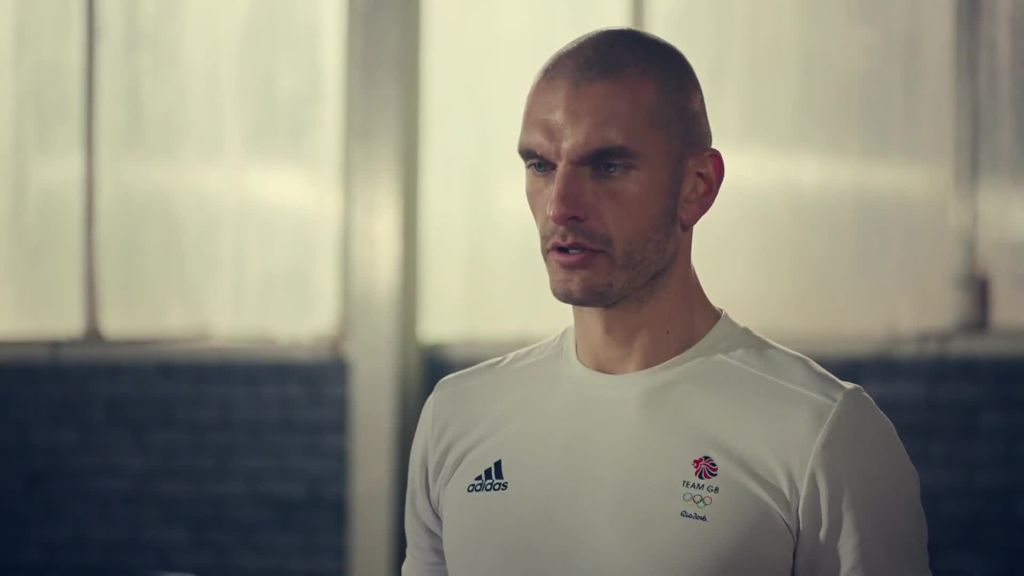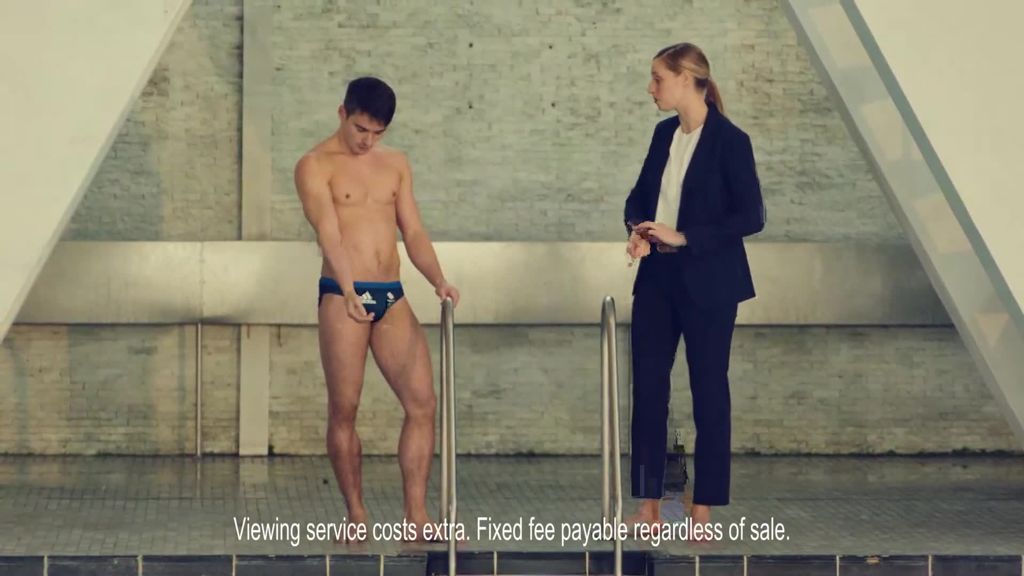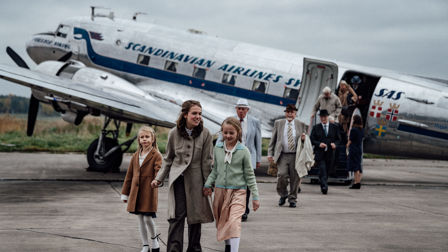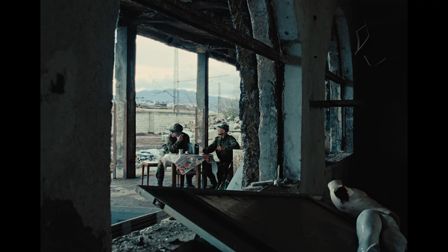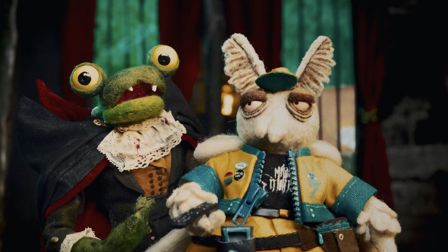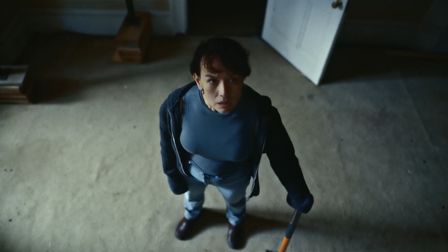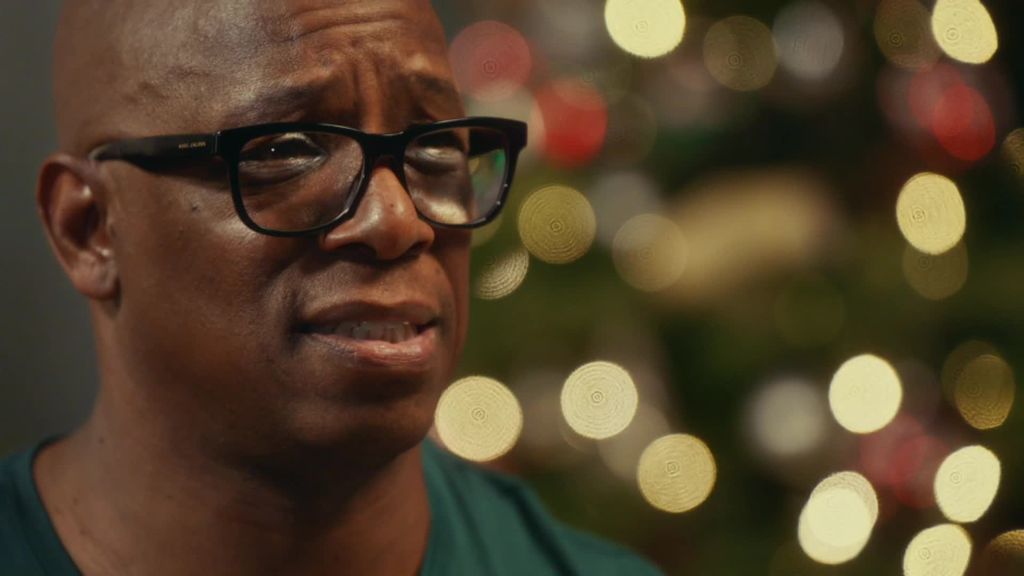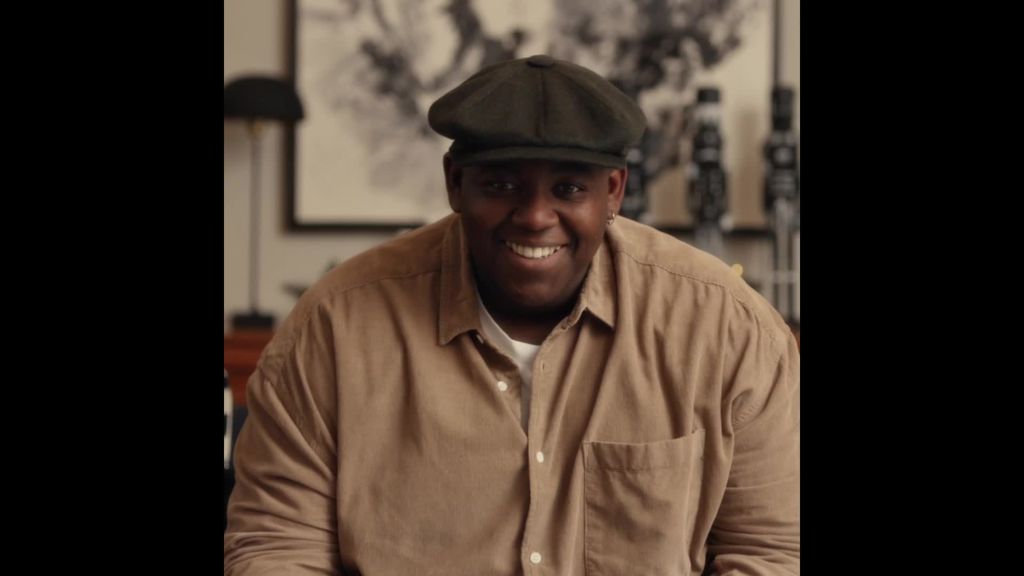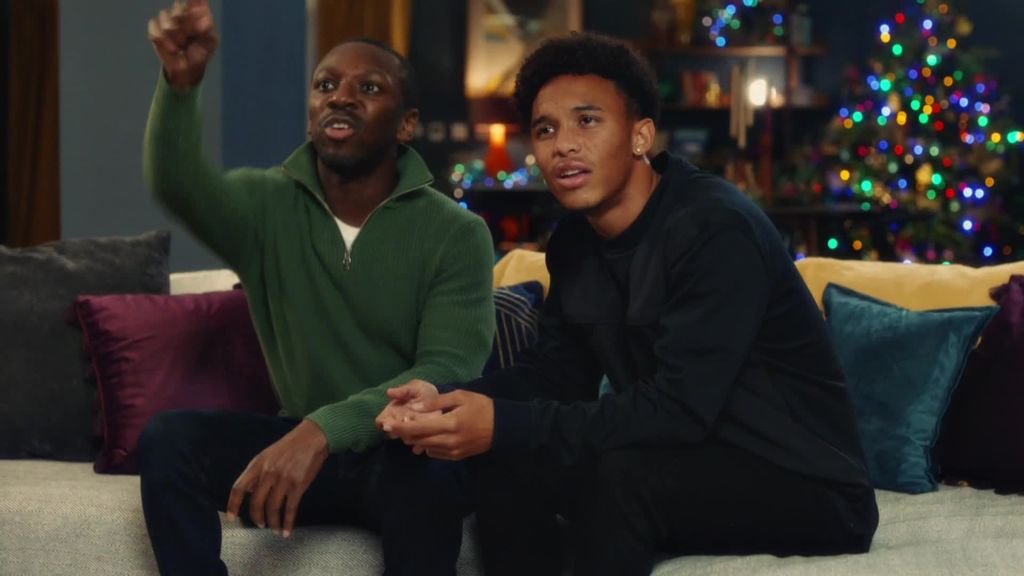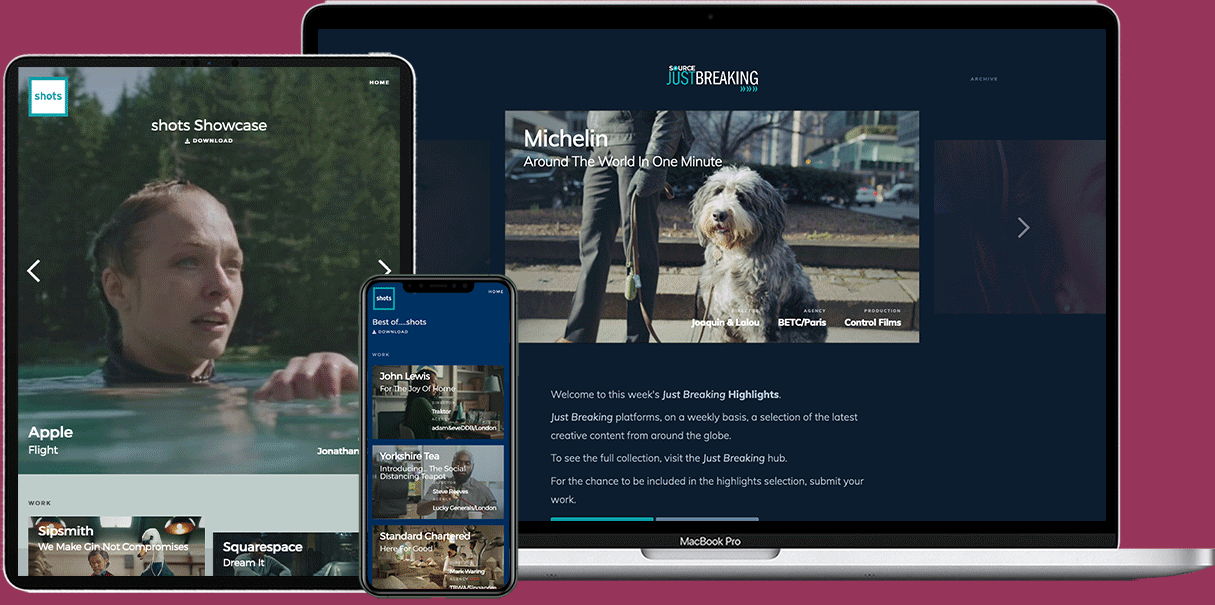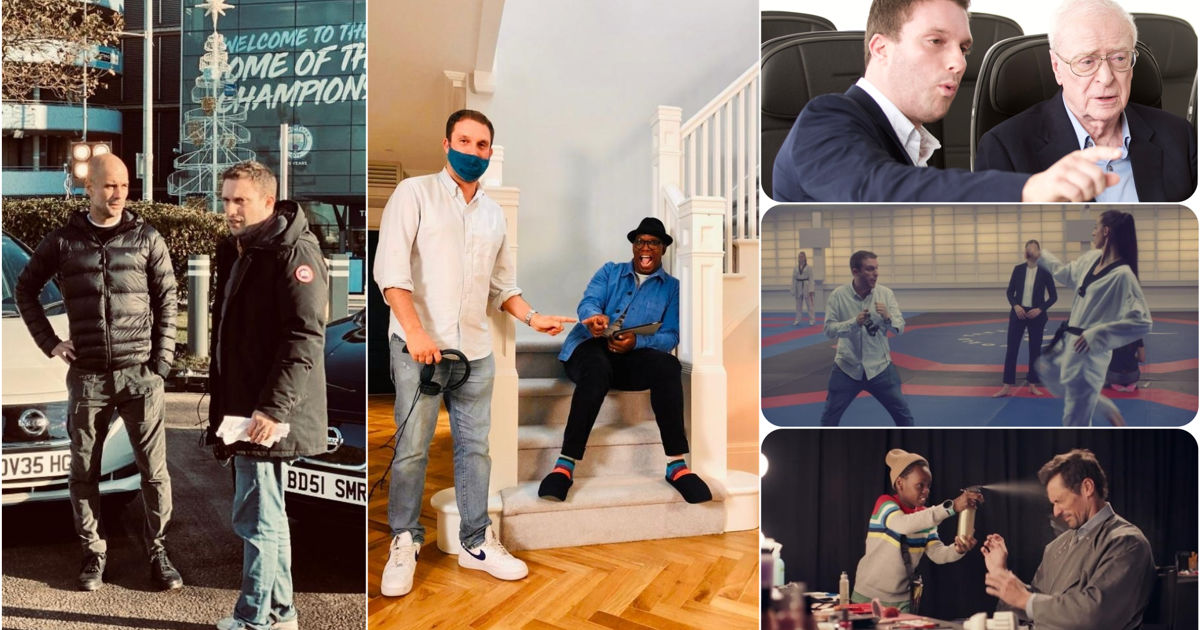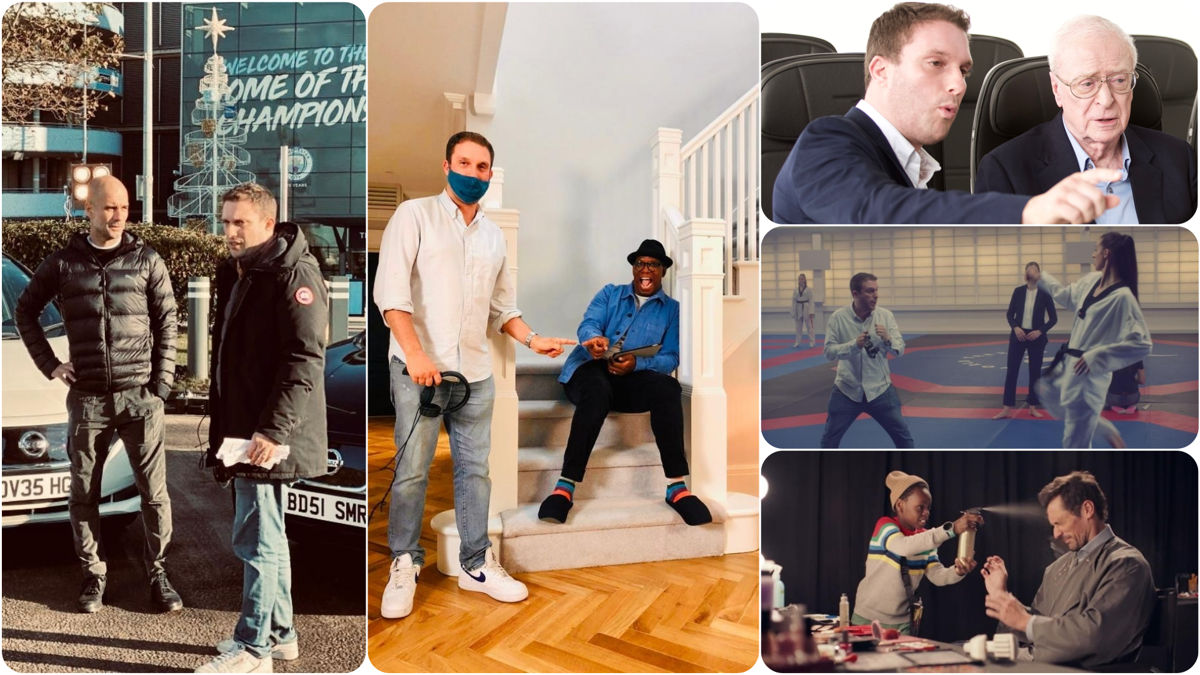Finding the funny with Benjamin Green
Award-winning comedy director Benjamin Green has worked with celebrated comedians such as Jack Whitehall and Romesh Ranganathan. But he's also shot comedy commercials with footballers, models and athletes... not people known for their comedy chops. So, how do you find the humour when working with such talent without the joke being on you?
Emmy Award-winning and BAFTA and British Comedy Award-nominated director Benjamin Green is someone used to bringing out the funny in people.
How do you take a cast of people who have no comedic training and, possibly, no natural comedic ability, and make them funny?
The MindsEye director has worked with James Corden on Carpool Karaoke, on TV shows such as An Idiot Abroad, and with comedian Romesh Ranganathan on Asian Provocateur. He's also shot more than his share of comedic commercials. Sometimes those pieces of work feature people you would expect to be funny - Jack Whitehall or David Walliams, say - but other times Green has worked with talent whose, well, talent isn't necessarily in comedy; athletes, models, footballers...
So, how do you take a cast of people who have no comedy training and, possibly, no natural comedic ability, and make them funny?
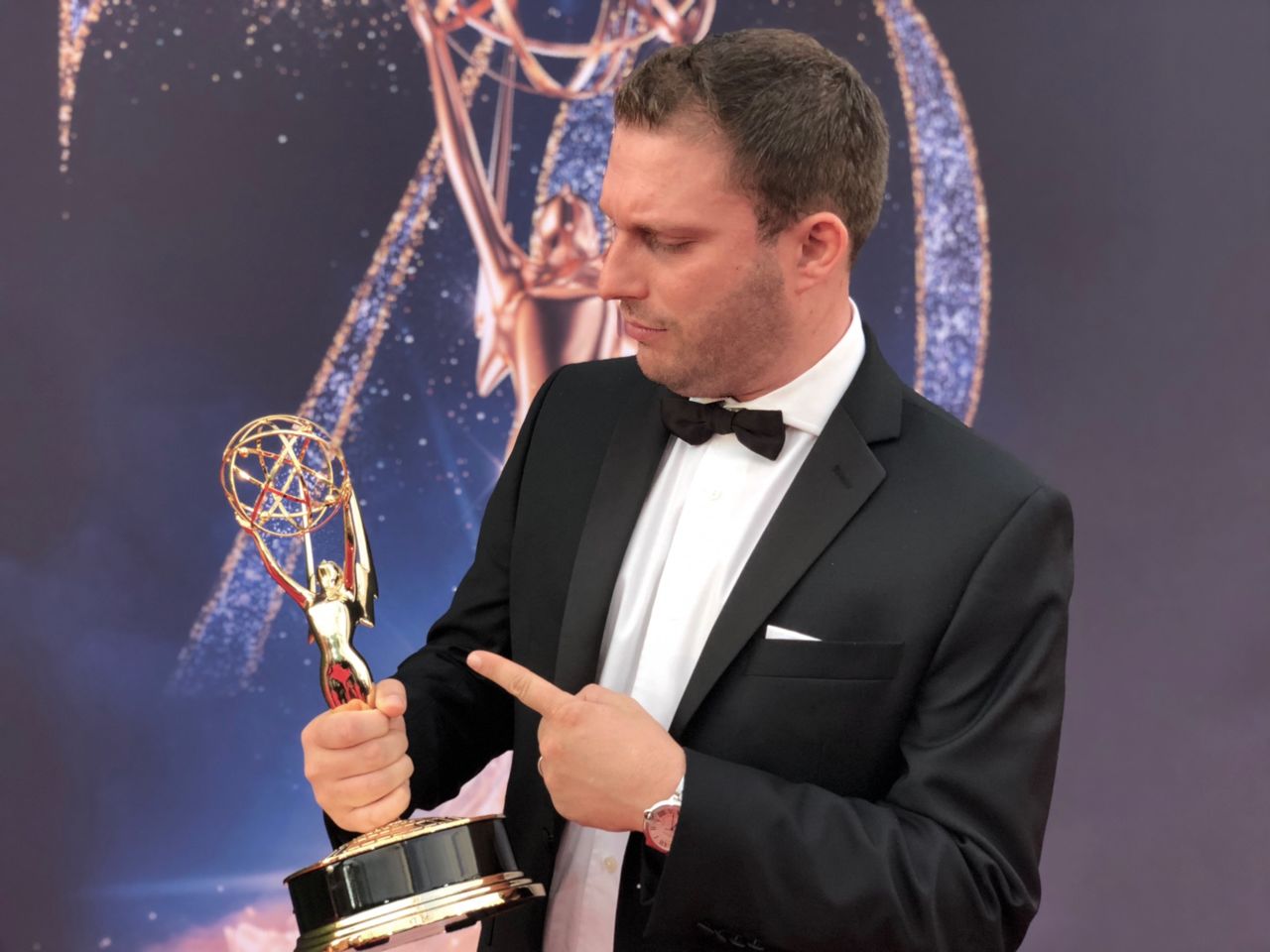
Above: Green with his Emmy, which he won in 2018 for his work on Carpool Karaoke.
When you're working on a comedy campaign with people who are neither comedians or actors, what's your approach?
Ask for another brief...
I think, whoever you are working with, it's about identifying why people are - or could be - funny. Sometimes it’s leaning into a preconception of that person, especially if they are celeb or sports person, other times it’s working on the comedic dynamic of whoever they are acting alongside. I think the key is to be open to ideas that strike you as the shoot unfolds.
With non-comedic talent, the more you allow them to play the scene and improvise, the better performance you get.
Does the script do a lot of the heavy lifting in situations such as these, or is it a case of improvising with the talent?
I tend to be allowed to have a decent amount of input into the script. There is always a balance of making sure the client’s brand message hits home, whilst also doing your best to land the comedy. I find, with non-comedic talent, the more you allow them to play the scene and improvise, the better performance you get. You still shoot the script as boarded but you get a whole load of funny extras as well. It makes the edit harder, but in a good way!
Purplebricks – Bianca Walkden Kicking Practice
Purplebricks – Moe Sbihi Med Ball
Purplebricks – Dan Goodfellow Tattoo Chat
Above: A host of British athletes featured in a campaign for Purplebricks.
You worked with a raft of British athletes for the Purplebricks campaign; how was that experience?
I think I was very lucky with the athletes we had on board. They were all up for having fun and didn’t take themselves too seriously. We made sure that they were never the butt of the joke. The joke was always the meeting of two incongruous worlds - Olympic athletes and estate agents. It was also helped by how brilliant and charming [actor] Harrie Hayes was. She got the tone of it perfectly.
No matter what insanity is going on in video village, for the talent, it should feel fun.
How hard is it to tease either a comedic performance, or a natural, straight performance from a non-actor?
It can be pretty challenging. It’s all about adaptability. You need to know when something isn’t working and be able to switch it up. One thing that is often overlooked is the atmosphere of a set. I make sure that no matter what insanity is going on in video village, for the talent, it should feel fun. It was one of my big takeaways from my time at Carpool Karaoke. If you create a fun, intimate space, with talented people, you will get some good stuff.
Credits
powered by
- Agency One Green Bean/London
- Production Company MindsEye
- Director Benjamin Green
-
-
Unlock full credits and more with a Source + shots membership.
Credits
powered by
- Agency One Green Bean/London
- Production Company MindsEye
- Director Benjamin Green
- Editor Phil Hignett
- Colorist Simona Cristea
- Creative Director Kat Thomas
- Creative Director Daniel Roberts
- Producer Michelle Grainger
- Executive Producer Charlie Phillips
- DP Cliff Evans
- Art Director Lucy Fewell
- Sound Designer James Lyme
- Composer Toby Knowles
- Talent David Gandy
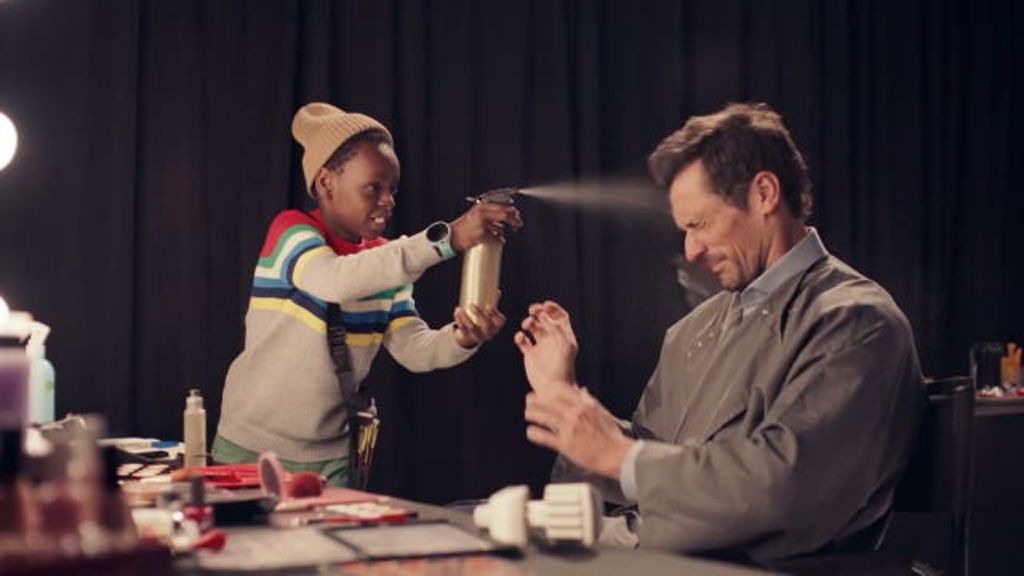
Credits
powered by
- Agency One Green Bean/London
- Production Company MindsEye
- Director Benjamin Green
- Editor Phil Hignett
- Colorist Simona Cristea
- Creative Director Kat Thomas
- Creative Director Daniel Roberts
- Producer Michelle Grainger
- Executive Producer Charlie Phillips
- DP Cliff Evans
- Art Director Lucy Fewell
- Sound Designer James Lyme
- Composer Toby Knowles
- Talent David Gandy
Above: Green recently worked with model David Gandy on a campaign for Vodafone.
David Gandy seemed pretty natural for the Neo campaign; while not an actor, does it help that he's used to being in front of a lens and taking direction?
David is a very annoying creature. He seems to be very good at everything. Not only that, he is bloody lovely at the same time. It was a really fun shoot and David got the joke instantly. I really just told him to play it straight and channel every shitty photo shoot he had ever been on. He really ran with it from that point on!
I found a lot of the shoot was spent sounding like a primary school teacher pretending that Further Maths was jolly good fun.
That campaign entailed working with children too; does the old adage of never working with children or animals still hold true?
I have to say, working with kids was a bit of challenge. Not because they weren’t all great, but there was a clear brief that they needed to be happy. I found a lot of the shoot was spent sounding like a primary school teacher pretending that Further Maths was jolly good fun. There’s a little bit of that film that I am particularly proud of; when Little J is in a frenzy, taking pictures. That was the end of a nine-minute take where I was shouting a whole raft of instructions for him to do as he is taking those pictures. In the rushes you can just hear me off camera shouting ‘More Pictures! More! FASTER!’. I think the adage might become kids shouldn’t work with adults.
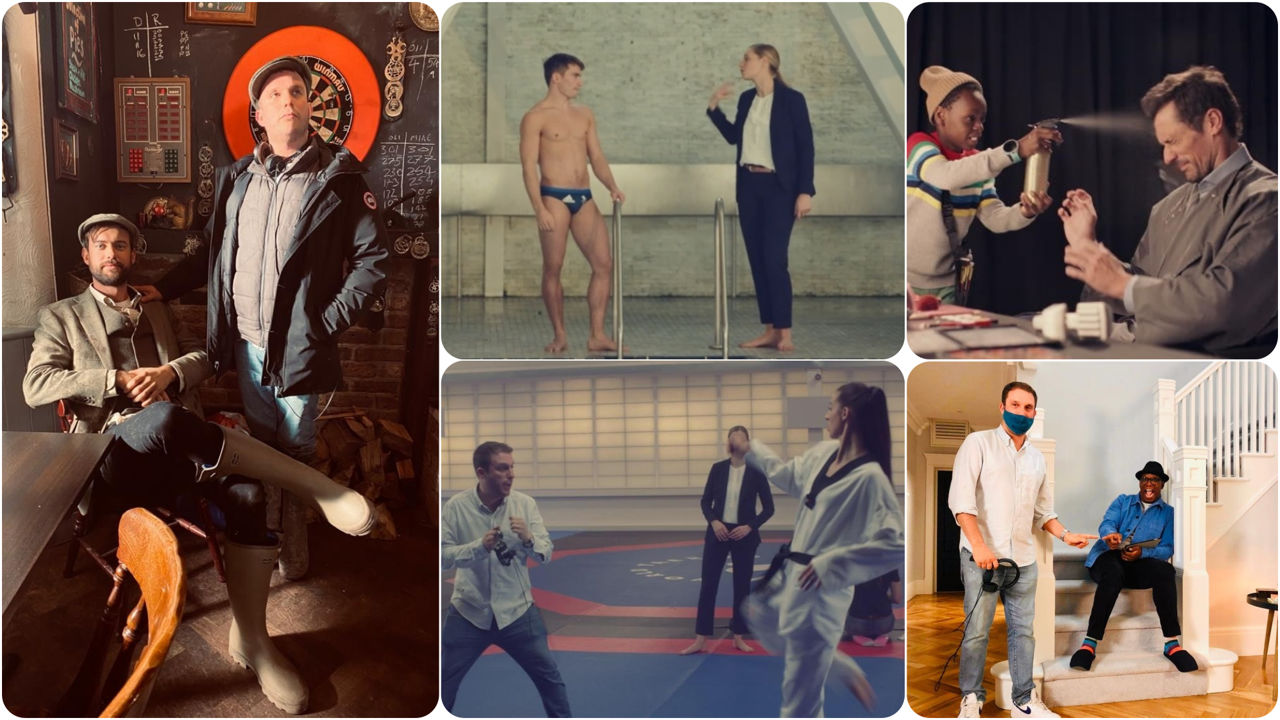
Above [clockwise from left]: Green on shoot with comedian Jack Whitehall. Actress Harrie Hayes with British Olympic diver Dan Goodfellow. A scene from the Neo spot with David Gandy. Green on set with Ian Wright, and with Olympic Taekwondo competitor, Bianca Walkden.
Like David Gandy, Ian Wright avoided the dreaded 'wooden-celeb' appearance for Facebook. He seems a naturally ebullient character; how much does that help?
Ian Wright is a legend. I found that, really, it was just a case of keeping it fresh and interesting. We all know there is a boring, mechanical side to filmmaking, but with Ian I found the harder I worked at throwing new lines at him to try out, or different ways to play it, the better it got. We did really long takes where I would throw out a whole raft of alternate end lines. I basically wouldn’t stop until he started laughing.
Getting a range of really big performances and also some more restrained takes gives you options in the edit.
If you're working on a commercial campaign with a known comedian, does the reverse of much of the above hold true, and you have to rein in some of their natural performer's instincts?
It very much depends on the comic. Most comics know that playing something straight is often the funniest. However, you need to harness their comedic instincts and get as much as you can from them. You don’t want to stifle that. I think getting a range of really big performances and also some more restrained takes gives you the options in the edit to scale up and down as needs be.
Facebook – Present
Facebook – Crackers
Facebook – Charades
Above: Former footballer Ian Wright avoided being wooden in his campaign for Facebook.
How do you know when you've got something funny or, more specifically, when you've got something funny enough?
When you laugh. That sounds glib, but you just have to hope that what you find funny, other people will too.
You just have to hope that what you find funny, other people will too.
What would be your one tip as a director to someone taking on a comedy script with non-actors for the first time?
See my first answer to question one.

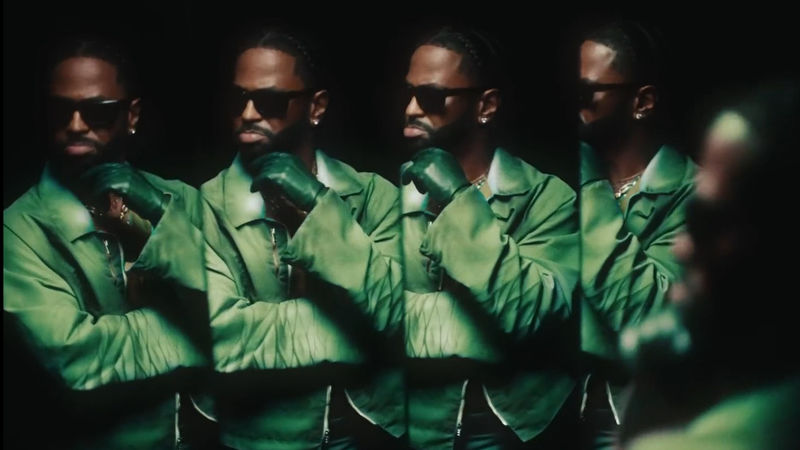
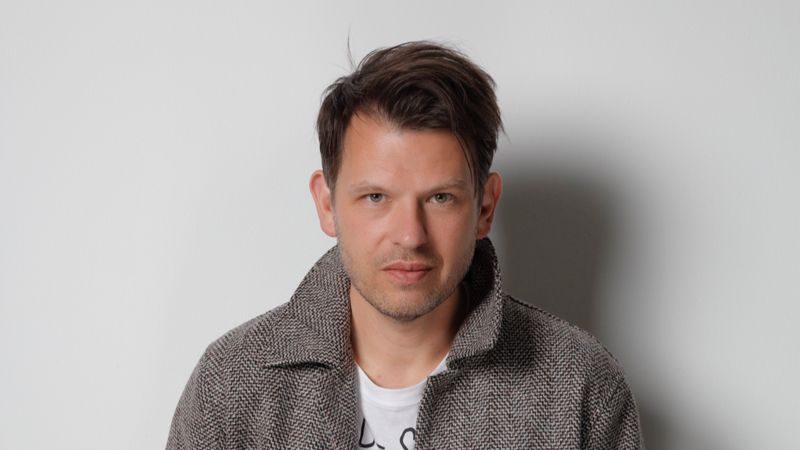
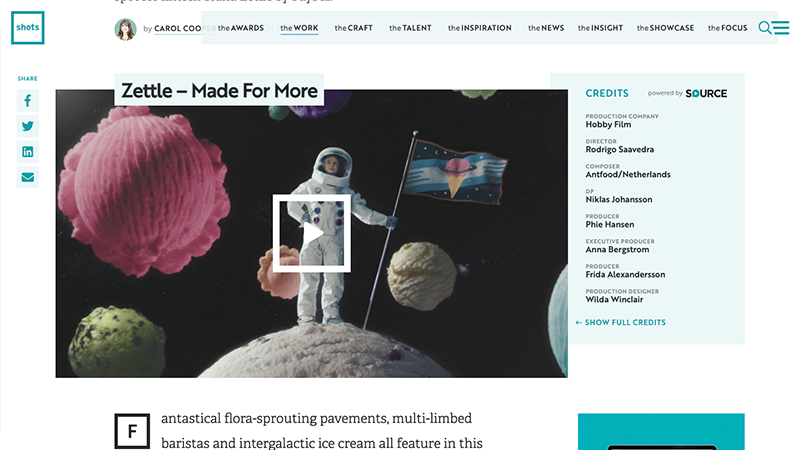
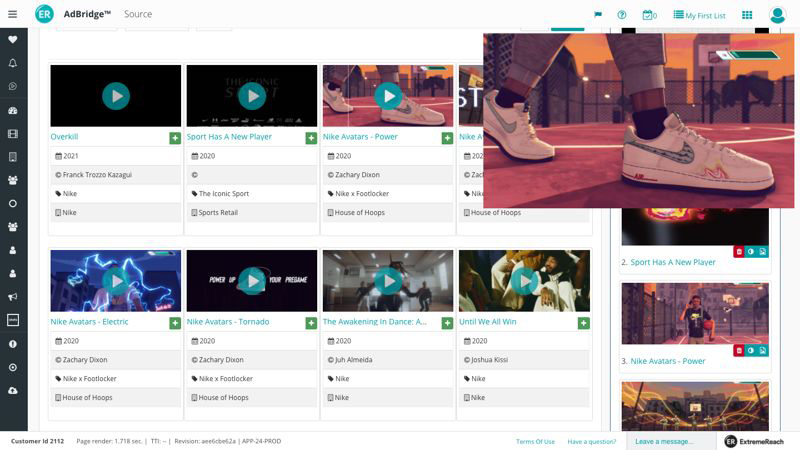
 + membership
+ membership

